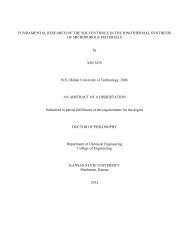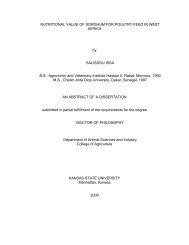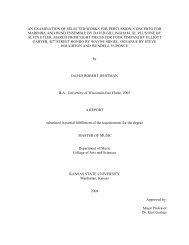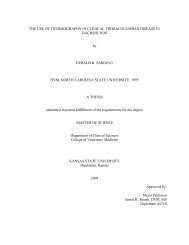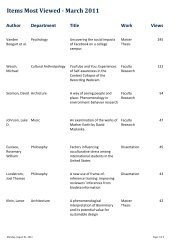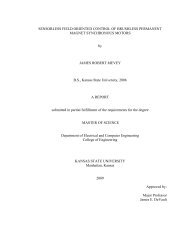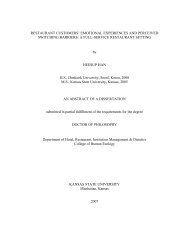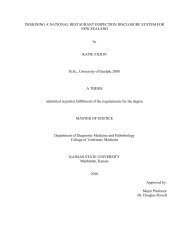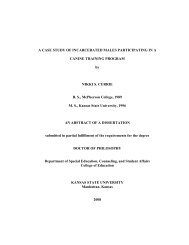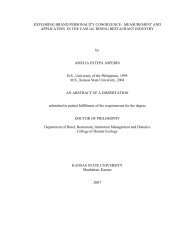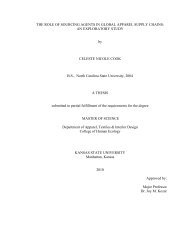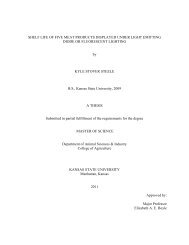SELFISH INTENTIONS - K-REx - Kansas State University
SELFISH INTENTIONS - K-REx - Kansas State University
SELFISH INTENTIONS - K-REx - Kansas State University
You also want an ePaper? Increase the reach of your titles
YUMPU automatically turns print PDFs into web optimized ePapers that Google loves.
general—facilitated commercial development, the efficient deployment of capital, and the<br />
orderly rearing of an educated labor force.” 42 However, extreme liberalization of law codes<br />
disrupted corroding notions of male sovereignty and marital sanctity. In response to this threat,<br />
VanBurkleo notes that, “By the 1850s, as antislavery agitation increased and women geared up<br />
for a rebellion, legal scholars had begun to recast the marriage contract primarily as a social<br />
institution, or ‘status.’ In so doing, they deemphasized its relations to the law of contract (which<br />
governed market relations), labored to distinguish it from slavery, and underscored its social<br />
consequences.” 43 She further contends that this debate between emphasizing marriage as<br />
“status” and downplaying marriage as a “contract” became the driving force for judicial divorce<br />
and propelled Americans toward “the notion of marriage as a social institution infused with<br />
vested rights and public interest.” 44<br />
Hendrik Hartog concurs. He argues that between the years of 1790 and 1850, American<br />
case law had three options when dealing with martial exits. He explains these three powers, “the<br />
power to declare one spouse ‘guilty’ of conduct that freed the other spouse from her or his<br />
commitment to stay in the relationship, the power to rule on the legality or illegality of a<br />
separation, and the power to prevent marriage. Each framed the doctrinal expression of a distinct<br />
mode of exit: of divorce, of separate maintenance agreements, and of abandonment and informal<br />
separation.” 45 Together these were the three options for husbands and wives who wished to end<br />
their marriages. In the case of divorce in particular, when an individual petitioned the court for a<br />
divorce, he or she more than likely wanted the divorce for a very private reason. But in<br />
42 Ibid., 67.<br />
43 Ibid., 68.<br />
44 Ibid., 69.<br />
45 Hartog, 64.<br />
14



